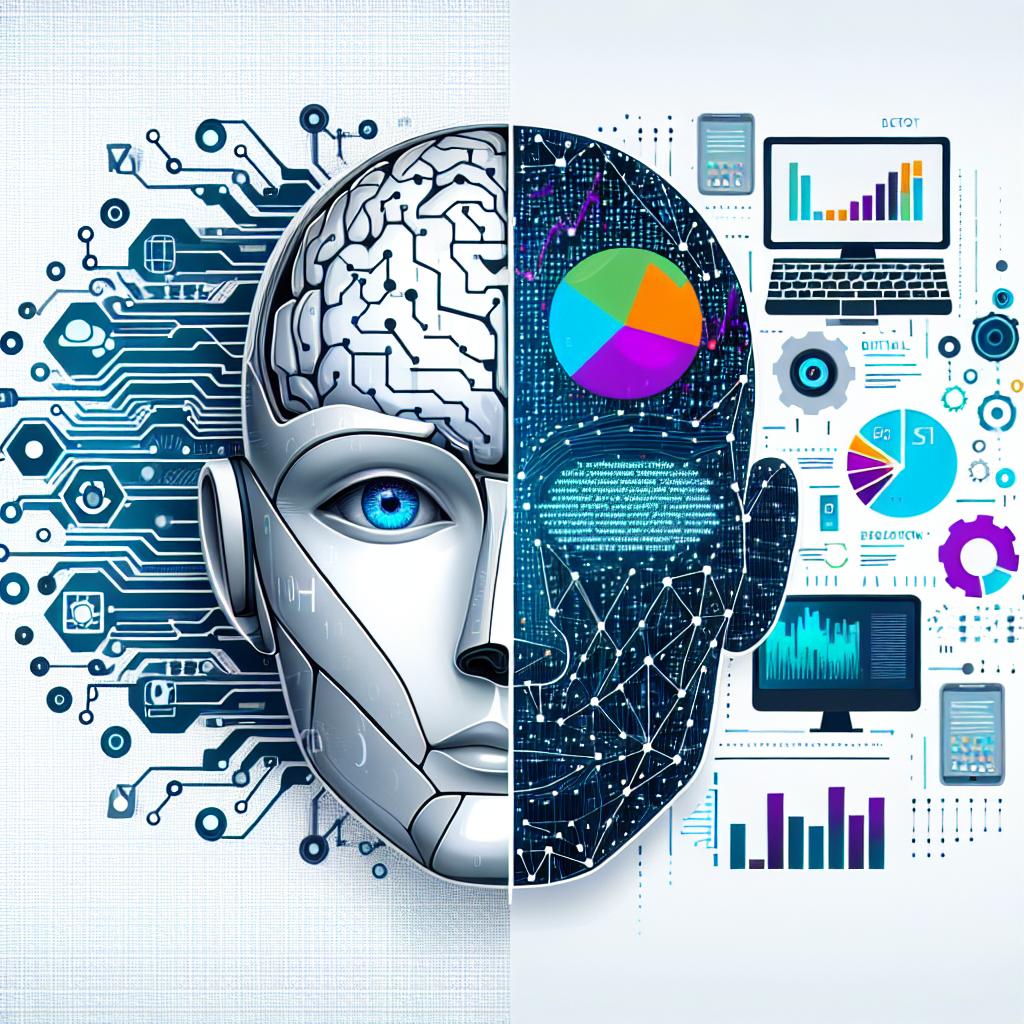Artificial Intelligence (AI) and Machine Learning are two terms that are often used interchangeably, but they are actually two distinct concepts within the field of computer science. While both AI and Machine Learning have the ability to perform tasks that were once thought to be exclusive to human intelligence, there are key differences between the two technologies that make one more powerful than the other in certain scenarios. In this article, we will explore the differences between AI and Machine Learning, and discuss which technology is more powerful in different contexts.
What is Artificial Intelligence?
Artificial Intelligence is a broad field of computer science that involves creating machines and systems that can perform tasks that typically require human intelligence. AI systems are designed to mimic human cognitive functions such as reasoning, learning, problem-solving, perception, and language understanding. AI can be applied to a wide range of tasks, from autonomous vehicles and virtual assistants to medical diagnosis and financial trading.
There are two main types of AI: Narrow AI and General AI. Narrow AI, also known as Weak AI, is designed to perform specific tasks within a limited domain, such as facial recognition or natural language processing. General AI, also known as Strong AI, is a theoretical form of AI that can perform any intellectual task that a human can do. General AI is still largely a concept in the realm of science fiction and has yet to be achieved in reality.
What is Machine Learning?
Machine Learning is a subset of AI that focuses on the development of algorithms and statistical models that allow computers to learn from and make predictions or decisions based on data. Machine Learning algorithms are designed to analyze large sets of data, identify patterns and trends, and make decisions or predictions without being explicitly programmed to do so.
There are three main types of Machine Learning: supervised learning, unsupervised learning, and reinforcement learning. In supervised learning, the algorithm is trained on labeled data, meaning the correct outputs are provided during training. In unsupervised learning, the algorithm is trained on unlabeled data, meaning the algorithm must find patterns and relationships in the data on its own. In reinforcement learning, the algorithm learns through trial and error, receiving feedback in the form of rewards or penalties for its actions.
Which is More Powerful: AI or Machine Learning?
The question of which technology is more powerful, AI or Machine Learning, is not a simple one to answer. Both AI and Machine Learning have their own strengths and weaknesses, and the choice of technology depends on the specific task or problem at hand.
In general, AI is more powerful than Machine Learning when it comes to tasks that require reasoning, decision-making, and problem-solving in complex and dynamic environments. AI systems, such as autonomous vehicles or virtual assistants, rely on a combination of different technologies, including Machine Learning, to perform these tasks. AI systems can adapt to changing conditions, learn from experience, and make decisions in real-time, making them more powerful in certain scenarios.
On the other hand, Machine Learning is more powerful than AI when it comes to tasks that require analyzing large amounts of data, identifying patterns and trends, and making predictions or decisions based on that data. Machine Learning algorithms are specifically designed to handle big data and are able to learn from vast amounts of information to make accurate predictions or decisions. Machine Learning is particularly effective in applications such as fraud detection, recommendation systems, and natural language processing.
Overall, the choice between AI and Machine Learning depends on the specific requirements of the task or problem at hand. In many cases, AI and Machine Learning are used together in combination to create powerful systems that can perform a wide range of tasks.
FAQs
Q: Can AI exist without Machine Learning?
A: Yes, AI can exist without Machine Learning. While Machine Learning is a subset of AI that focuses on learning from data, AI encompasses a broader range of technologies and methodologies for creating intelligent systems.
Q: Can Machine Learning exist without AI?
A: No, Machine Learning is a subset of AI and relies on AI techniques and methodologies to create intelligent systems that can learn from data.
Q: Which is more difficult to implement: AI or Machine Learning?
A: Both AI and Machine Learning can be complex and challenging to implement, depending on the specific task or problem at hand. AI systems require a combination of different technologies, including Machine Learning, to perform tasks that require reasoning, decision-making, and problem-solving. Machine Learning algorithms require expertise in data analysis, statistics, and programming to develop and deploy.
Q: Are AI and Machine Learning the same thing?
A: No, AI and Machine Learning are not the same thing. AI is a broad field of computer science that involves creating intelligent systems that can perform tasks that typically require human intelligence. Machine Learning is a subset of AI that focuses on developing algorithms and models that allow computers to learn from data.
In conclusion, both AI and Machine Learning are powerful technologies that have the potential to revolutionize industries and transform the way we live and work. While AI is more powerful in tasks that require reasoning, decision-making, and problem-solving, Machine Learning is more powerful in tasks that require analyzing large amounts of data, identifying patterns and trends, and making predictions or decisions based on that data. By understanding the strengths and weaknesses of each technology, we can leverage the power of AI and Machine Learning to create intelligent systems that can tackle complex problems and drive innovation in the years to come.

